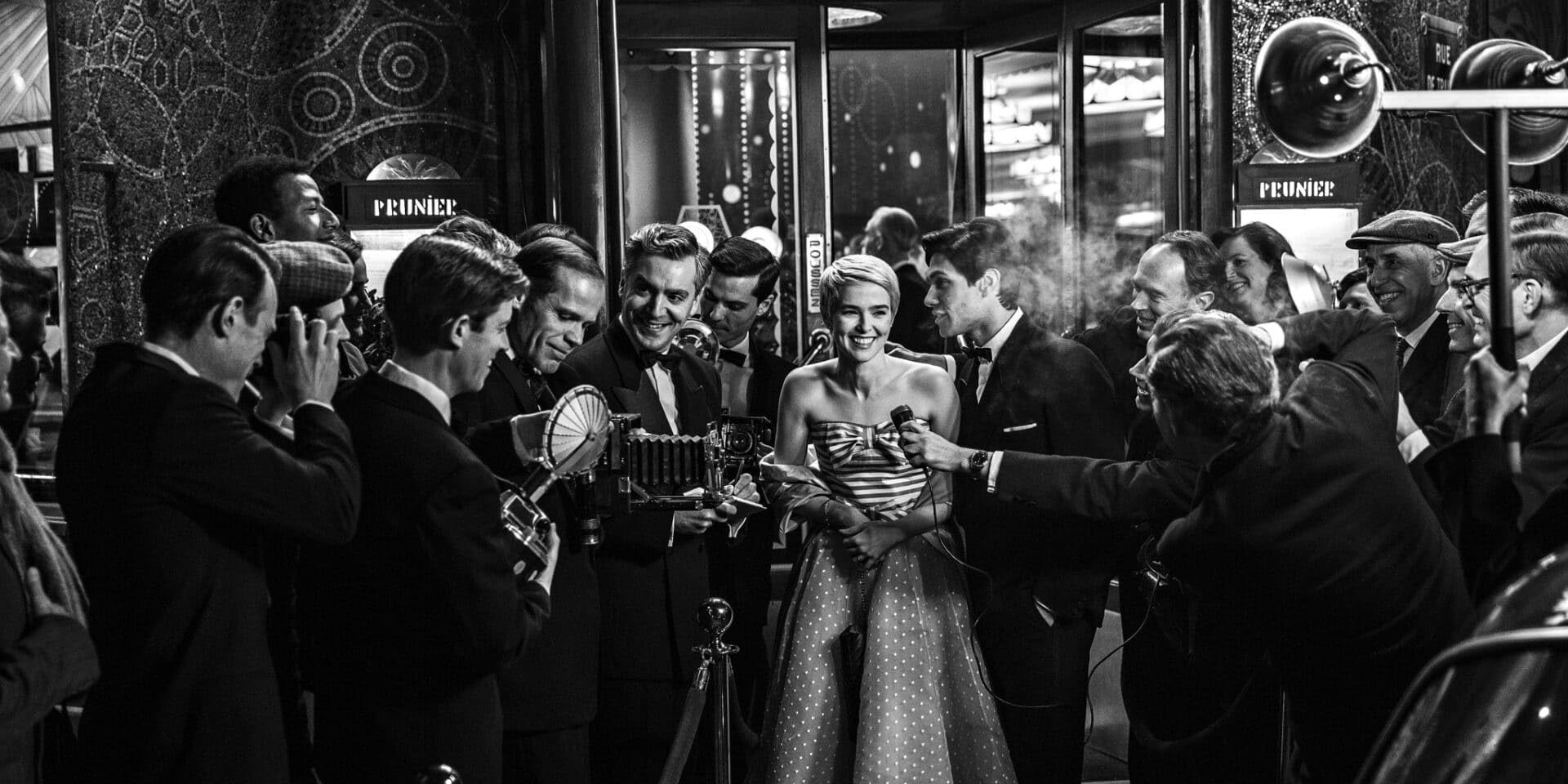Nouvelle Vague


Film
Richard Linklater's second 2025 feature continues his exploration of art history, and a clear appreciation for the mid-1900's. His previous project, Blue Moon, featured Ethan Hawke in a sublime performance as playwright Lorenz Hart on the eve of Oklahoma!'s debut, a film that I found enjoyable for its performances and jazzy chamber-piece aesthetic. Now, Linklater's follow up-talk about a busy year-Nouvelle Vague tackles the beginning of the French New Wave cinematic movement, specifically Jean-Luc Godard's filming of his debut feature film, Breathless. Whereas Blue Moon's near single-set production likened it to the very stage productions Linklater was referencing, his love letter to 1950's French cinema takes a similar reflective approach. Shot entirely in black and white, Nouvelle Vague acts as a time piece, a casual glimpse into the French cinematic landscape during the inception and rise of the New French Wave, a seminal time in the world's advancement of filmmaking. As important as this time period was, and Linklater's obvious appreciation for it, specifically Godard's contributions, the ambitious scope of the film and rigid screenplay makes for a difficult viewing experience.
While I had my hesitations about Linklater's Blue Moon, and its screenplay absolutely jam-packed with musical theater references, I never found it to be an inaccessible film. Using Ethan Hawke as a vehicle to distribute wise-cracking quips or bursting into song made it much more of a joy than a slog. Hawke's performance alone is worth the price of admission. Sadly, Linklater doesn't have the same powerful performance to salvage his French New Wave film. Guillaume Marbeck does a fine job portraying Jean-Luc Godard, whose bulldozing through any and all roadblocks to get his film made after working as a film critic for years is admirably done. But the lead performance and those of Zoey Deutch as Jean Seberg, Adrien Rouyard as François Truffaut, and Bruno Dreyfürst as Godard's producer Georges de Beauregard lack the level of power and panache to make Nouvelle Vague have the same punch as Blue Moon. Of course its ridiculous to compare performances in this way but I wasn't entranced by Marbeck's work, as fine as it was, and the chemistry between the cast felt lacking. While this could've been a reflection on the chaotic cast work for Godard's own film at the core of this film, the absence of a commanding central presence proves more detrimental than one might expect.
The lack of a definitive performance doesn't render Nouvelle Vague completely inert, but it snowballs the film's esoteric lecturing on the French New Wave into a rather boring pontification. Attempting to insert every major and minor French filmmaker at the time—François Truffaut, Éric Rohmer, Claude Chabrol, Jacques Rivette, etc.—is a bold move by Linklater, but it makes the rather short film feel overstuffed. The incessant name-drops feel more like shoe-horned callouts than actual substance to the film, referencing how Godard should take advice, but not really take it, be himself, but also be like Hitchcock, Bergman, and others. A decent glimpse into the expectations of making a film, sure, but I found the attempts to cover the sprawling landscape of French cinema to be hollow and reducing the film's overall focus.
However, what works wonders is Linklater's added warmth to the film, pushed forth by the fuzzy black and white cinematography that helps the film feel like a time capsule. Additionally, the film doesn't take itself seriously at all, reflecting as a playful interpretation of Godard's eccentric filmmaking style. His obsession with making something new, the resistance to having actors rehearse lines to prevent a mechanical recital, and his refusal to stick to any sort of schedule—the idiosyncrasies of Godard, along with his companions' reactions, provide a light whimsy to the didactic lecturing of film history. These moments of levity offer glimpses of what the film could have been, had it maintained a strong focus of Godard's methodology and just how impactful the making of Breathless was to the movement.
While I don't know much about musical theater, I still found ways to be moved and entertained by Blue Moon. It's likely thanks to Hawke's tremendous performance, but still, Linklater's love letter to theater and Hart was a fun, and interesting chamber-piece. Unfortunately, I didn't feel that same magic with Nouvelle Vague. It unravels as a rather inaccessible scholarly dissertation more than an exciting dive into French cinematic history. If I revisit that era of film, gathering a stronger comprehension of its style and substance, it's possible I'd feel differently about the film, but I really missed Blue Moon's exciting accessibility here. That lacking characteristic tragically diluted a film rich with the love of movies, something I desperately wanted to enjoy.
Froth
For the sake of Nouvelle Vague being about French art I suppose it makes the most sense to enjoy some French styled beer with it. Fair Isle Brewing here in Seattle has mastered the art of the saison and they recently embarked on a collaborative journey with the equally wonderful Bizarre Brewing to make a smoked saison. The product of this collaboration is the Waits, a smoked saison that is bursting with flavors and aromas from its namesake. Providing smokey overtones across the crisp saison, the overall profile of the brew is incredibly smooth and delightfully complex. There's a strong pinch of lemon along with the classic spicy profile, with an even stronger sense of peppercorn than usual, but overall the smokiness pulls back on any present bitterness and acidity. It's an interesting flavor and that's definitely not a bad thing as the Waits is a deliciously dry and refreshing saison that's well worth the Waits.









